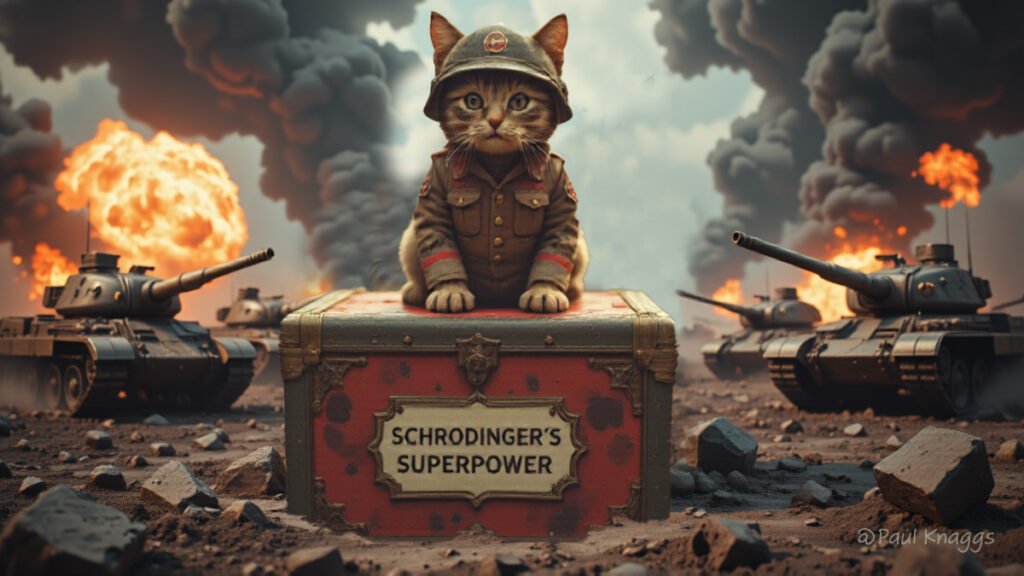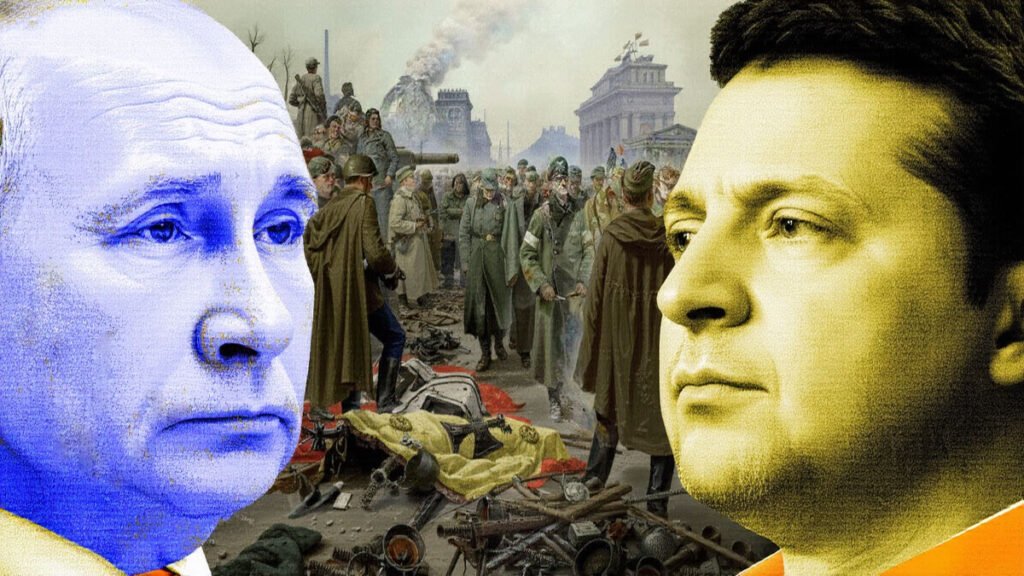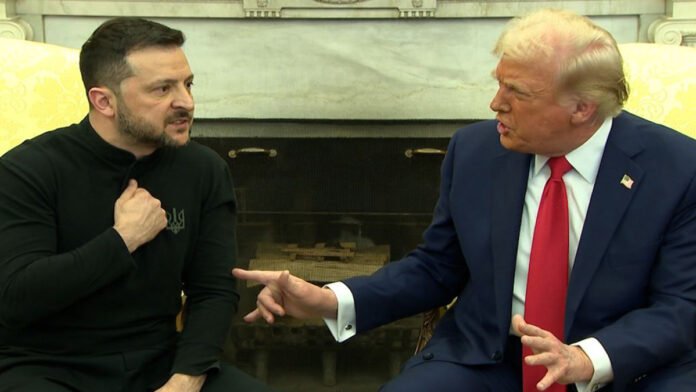“Any fool can start a war, but it takes real leadership to secure the peace.” – David Lloyd George
The Power of the Purse: How Trump’s Aid Freeze Changed Everything
In a stunning demonstration of US financial leverage, a single announcement—Washington’s “pause and review” of military aid to Ukraine—has utterly transformed the geopolitical landscape. Ukrainian President Volodymyr Zelensky, who just days ago stood defiant in European capitals, has dramatically reversed course, extending an olive branch to Donald Trump and declaring himself “ready to work under Trump’s strong leadership” to achieve lasting peace.
This remarkable pivot comes mere days after their explosive confrontation in the Oval Office that exposed deep fractures in the Western alliance. Zelensky’s conciliatory tone marks a stark departure from his weekend summit in London, where he had proclaimed a peace deal was “still very, very far away”—a statement Trump later condemned as “the worst that could have been made.”
The Washington Showdown That Changed Everything
The Oval Office meeting that precipitated this crisis was originally intended to finalize a minerals deal between the two nations. Instead, it devolved into an unprecedented public dressing-down of a wartime leader by his primary benefactor. Vice President JD Vance explicitly questioned Zelensky’s gratitude, asking whether he had even said “thank you” during the discussions, while Trump accused the Ukrainian leader of “gambling with World War III” and dismissed him with a curt “come back when you’re ready for peace.”
The Ukrainian delegation left Washington empty-handed, without signing the anticipated minerals agreement that would have granted the US access to Ukraine’s rare earth resources. The diplomatic rupture appeared complete.
Europe’s Brief Moment of Defiance
In the immediate aftermath of the Washington debacle, European leaders rallied around Zelensky in a show of solidarity that now appears more theatrical than substantial. At Downing Street, Sir Keir Starmer greeted the Ukrainian president with a warm embrace, assuring him he had the “full backing across the United Kingdom.” During that visit, Zelensky and Starmer signed a £2.26bn loan for Ukrainian military supplies, to be repaid using profits from frozen Russian assets—a bold statement that now reads as desperate posturing.
Simultaneously, the European Union responded to Trump’s hardline stance by announcing plans to send loans of up to €150 billion to governments to boost military spending. European Commission President Ursula von der Leyen declared with characteristic gravity: “Europe is ready to massively boost its defense spending, both to respond to the short-term urgency to act and to support Ukraine, but also to address the long-term need to take on more responsibility for our own European security.”

The rhetoric reached fever pitch as EU officials claimed Europe was facing “the most serious crisis within the Western alliance since 1945 as the United States sides with Russia.” French President Emmanuel Macron announced his intention to raise France’s military expenditure to between 3 and 3.5 percent of GDP—far exceeding NATO’s 2 percent target—while warning Trump: “You can’t be weak in the face of Putin.” The contradiction was glaring yet unremarked: Russia was simultaneously portrayed as an unstoppable juggernaut threatening all of Europe and a paper tiger helplessly stalled by Ukraine’s plucky resistance—whichever version best served the argument for more military spending at any given moment.
The Capitulation: Zelensky’s Abrupt About-Face
All it took was the freeze of American military aid to shatter this facade of European resolve. Within days, Zelensky issued a detailed social media statement that represented complete diplomatic capitulation. The Ukrainian leader described the Oval Office meeting as “regrettable,” admitting “it did not go the way it was supposed to be.” With newfound humility, he added: “It is time to make things right. We would like future cooperation and communication to be constructive.”
Gone was the defiant rhetoric of just days earlier. In its place, Zelensky offered explicit gratitude for past American support, particularly highlighting the provision of Javelin anti-tank missiles during Trump’s first administration. “We do really value how much America has done to help Ukraine maintain its sovereignty and independence,” he emphasised.
Zelensky’s response came in his social media thread, carefully balancing diplomatic necessity with face-saving language. He explicitly recognised previous US support, particularly highlighting the provision of Javelin anti-tank missiles during Trump’s first administration. “We do really value how much America has done to help Ukraine maintain its sovereignty and independence,” he emphasised.
Most significantly, Zelensky outlined concrete steps toward peace: “We are ready to work fast to end the war, and the first stages could be the release of prisoners and truce in the sky… and truce in the sea immediately, if Russia will do the same.” His proposed framework includes:
- Immediate prisoner exchanges
- A comprehensive aerial truce banning missiles and long-range drones
- Prohibition of attacks on civilian infrastructure
- Maritime ceasefire
- Rapid progression through subsequent negotiation stages
The Kremlin’s Measured Victory
Moscow’s response has been tellingly restrained. Kremlin spokesperson Dmitry Peskov told the BBC that America’s pause in military aid would “probably be the best contribution to the cause of peace.” This measured statement suggests Russia recognises the diplomatic opening created by Trump’s financial leverage—and understands that excessive celebration might complicate the emerging peace process.
European Allies Fall in Line
The European powers that so recently proclaimed their unwavering support for Ukraine have pivoted with remarkable speed. NATO Secretary General Mark Rutte advised Zelensky to “find a way” to restore his relationship with Trump, telling the BBC: “We have to respect what Trump has done for Ukraine so far.”
Sir Keir Starmer, who days earlier had positioned Britain as steadfastly committed to Ukraine’s military support, now welcomes Zelensky’s “steadfast commitment to securing peace,” adding it is “vital that all parties worked towards a lasting and secure peace for Ukraine as soon as possible.”
Sir Keir Starmer, who days earlier had positioned Britain as steadfastly committed to Ukraine’s military support, now welcomes Zelensky’s “steadfast commitment to securing peace,” adding it is “vital that all parties worked towards a lasting and secure peace for Ukraine as soon as possible.”
The Hard Realities of War and Peace

“To win a war takes bravery, but to win the peace takes patience, wisdom, and sacrifice.” – John F. Kennedy
The abrupt shift in rhetoric from Kyiv and the rapid adjustments from European capitals expose a stark reality: the West’s much-vaunted unity on Ukraine was always built on American funding, not shared principle. After nearly three years of conflict and hundreds of billions in military aid, the path forward now bends decisively toward diplomacy rather than continued escalation.
While defense contractors and foreign policy hawks may lament this development, the alternatives—continued bloodshed, economic strain, and the risk of wider conflict—have finally become untenable. The mineral deal that Zelensky now eagerly seeks to sign with the US represents not just economic cooperation but a symbolic pivot toward post-war reconstruction and the hard compromises that peace will require.
For ordinary Ukrainians who have endured years of devastating conflict, and for Russians suffering under sanctions and the weight of war, the prospect of negotiated peace—however imperfect—offers the first real hope since the conflict began.
The question now is whether the political and media establishments in Western capitals, which have invested so heavily in portraying this conflict as an existential battle for democracy itself, can adapt to this new reality without losing face. For those who have profited from war—both financially and politically—peace may prove an unwelcome development. But for those on the frontlines and the millions displaced, it cannot come soon enough.
As history has repeatedly shown, wars eventually end not when one side achieves total victory, but when both sides recognize that peace serves their interests better than continued conflict. That moment has finally arrived for Ukraine and Russia—proving once again that when The Imperium commands and opens or closes its checkbook, the world changes course. Money, not morality, remains the ultimate arbiter of international affairs. The rest is merely spectacle for the masses while the bodies pile up and defense contractors count their billions.
Support Independent Journalism Today
Our unwavering dedication is to provide you with unbiased news, diverse perspectives, and insightful opinions. We're on a mission to ensure that those in positions of power are held accountable for their actions, but we can't do it alone. Labour Heartlands is primarily funded by me, Paul Knaggs, and by the generous contributions of readers like you. Your donations keep us going and help us uphold the principles of independent journalism. Join us in our quest for truth, transparency, and accountability – donate today and be a part of our mission!
Like everyone else, we're facing challenges, and we need your help to stay online and continue providing crucial journalism. Every contribution, no matter how small, goes a long way in helping us thrive. By becoming one of our donors, you become a vital part of our mission to uncover the truth and uphold the values of democracy.
While we maintain our independence from political affiliations, we stand united against corruption, injustice, and the erosion of free speech, truth, and democracy. We believe in the power of accurate information in a democracy, and we consider facts non-negotiable.
Your support, no matter the amount, can make a significant impact. Together, we can make a difference and continue our journey toward a more informed and just society.
Thank you for supporting Labour Heartlands












